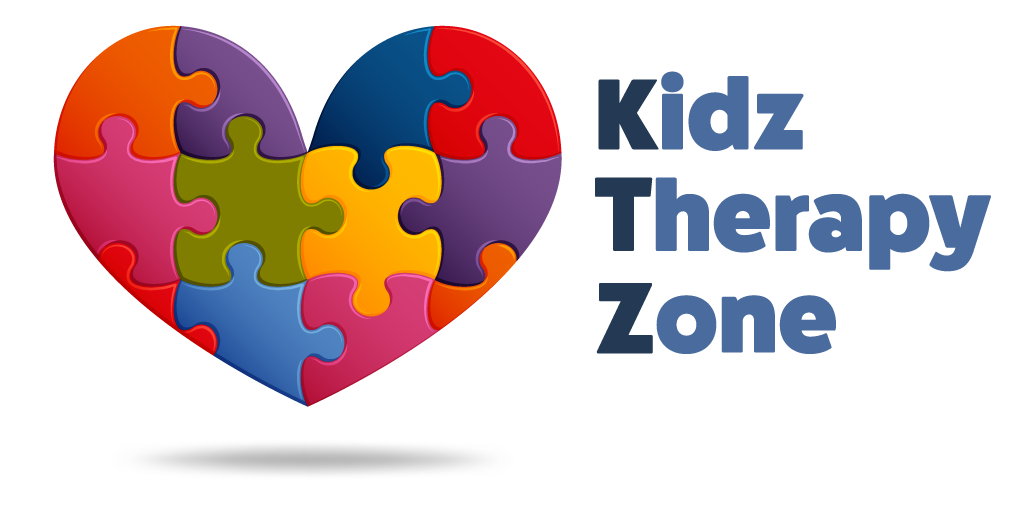Frequently Asked Questions
Most Popular Questions
✨ Services Offered
-
Speech Therapy
-
Occupational Therapy
-
Feeding Therapy
⏰ Hours of Operation
-
Monday–Friday: 9:00 AM – 6:00 PM
🏢 Office Locations
-
Winter Garden
-
Orlando / SODO
❓ Accepting New Patients?
-
Yes!
Infants & Toddlers (0–2 years)
- No babbling by 6–9 months
- Doesn’t respond to name or sounds by 12 months
- No first word by 15 months
- Fewer than 10 words by 18 months
- No 2-word phrases by 24 months
- Doesn’t gesture or use facial expressions
- Frequent frustration when trying to communicate
Preschoolers (2–5 years)
- Hard to understand by age 2–3
- Struggles to form sentences
- Limited vocabulary or omits words
- Speech sound errors past age 3
- Stuttering or noticeable pauses
- Difficulty following directions
- Lack of pretend play or conversations
School-Age Children (5+ years)
- Hard to understand in class
- Trouble retelling stories or explaining
- Mispronounces sounds (e.g. "fumb" for "thumb")
- Avoids speaking in groups
- Poor grammar or vocabulary
- Struggles to follow directions
- Signs of auditory processing difficulties
Additional Considerations
- Premature birth or medical complications
- Diagnosed conditions (autism, Down syndrome, etc.)
- Feeding/swallowing issues
- Bilingual but not progressing
- Frustration or avoidance with communication
If something feels off with your child’s communication, trust your instincts. An evaluation provides clarity and a path forward.
1. Case History & Intake
- Developmental and medical background
- Language exposure
- Parent concerns and communication behaviors
2. Informal Observation
- Attention, engagement, and play
- Understanding and expression
3. Standardized Testing
- Receptive & expressive language
- Articulation and fluency
- Voice and oral-motor skills
- Social (pragmatic) language
4. Hearing Screening
- May be included or recommended
5. Language Sample / Speech Inventory
- Natural speech during play or structured activities
6. Analysis & Diagnosis
- Determine delay/disorder, severity, and needs.
7. Recommendations & Plan
- Results shared with family
- Therapy goals and home tips provided
Infants & Toddlers (0–2 years)
- Doesn’t grasp toys or explore
- Delayed sitting or crawling
- Avoids touch or textures
- Feeding difficulties
- Low muscle tone
- Passive or fussy behaviors
Preschoolers (2–5 years)
- Difficulty with fine motor tasks
- Avoids messy play
- Trouble dressing or using utensils
- Clumsy or uncoordinated
- Meltdowns during grooming
- Struggles with transitions
- Over- or under-reacts to sensory input
- Limited peer interaction
School-Age Children (5+ years)
- Handwriting struggles
- Tires during fine motor work
- Poor organization or focus
- Trouble with dressing/hygiene
- Poor posture or restlessness
- Emotional dysregulation
- Sensory overload or inflexibility
Additional Considerations
- Diagnosed with autism, ADHD, SPD, etc.
- Classroom participation concerns
- Overreliance on adults for daily tasks
If your child avoids tasks, seems delayed, or is overwhelmed, OT can uncover the "why" and build skills through play and support.
Case History & Intake Interview
Developmental milestones (motor, sensory, self-care)
Medical and birth history
Parent concerns about motor, sensory, and daily living skills
👀 Observational Assessment
Play, social interaction, and engagement
Fine and gross motor abilities
Emotional regulation and task participation
📊 Standardized Testing (as appropriate)
Fine motor and visual-motor integration
Sensory processing
Self-care and daily living skills
Motor coordination and planning
🧩 Sensory Profile & Functional Skills Review
How the child processes sensory input
Impact on focus, behavior, and transitions
✅ Analysis & Interpretation
Identify delays or difficulties in development
Determine severity and areas of need
🎯 Recommendations & Therapy Plan
Clear summary of findings shared with caregivers
Therapy frequency and focus areas recommended
Home strategies and caregiver coaching provided
- Avoids certain textures or foods
- Relies on bottles/purees beyond age norms
- Extremely picky with limited variety
- Poor weight gain or slow growth
- Difficulty chewing or swallowing
- Gagging, choking, or vomiting with food
- Review of medical and feeding history
- Observation during meals/snacks
- Oral-motor and sensory assessment
- Developmental and behavioral screening
- Parent coaching and goal setting
Kidz Therapy Zone is more than just a therapy center — it’s a place where breakthroughs happen. Founded and led by a passionate Occupational Therapist, our practice is rooted in a deep commitment to empowering children and supporting families every step of the way.
What makes us different:
- Expert, Heart-Driven Team: Our licensed therapists bring not only top-level training and experience but also a heartfelt dedication to each child’s progress.
- Strengths-Based, Neuro-Affirming Approach: We celebrate each child’s individuality. Therapy is personalized and play-based — designed around your child’s interests, needs, and developmental level.
- Comprehensive Support System: From your first call to ongoing care, our front desk and billing teams are here to ensure a smooth, stress-free experience.
- Commitment to Excellence: We aim to be Central Florida’s leading pediatric therapy practice, providing outstanding care that families can trust.
Accepted Insurance Plans
- Aetna Better Health
- Ambetter
- Cigna
- Humana Medicaid
- Medicaid (CMS)
- Oscar
- Simply Healthcare
- Sunshine
- Tricare
- United Healthcare
- UMR
Self-Pay: Competitive self-pay rates available. Contact us for more info.
Scholarship: We are a direct-pay provider for the Step Up for Students Scholarship (Family Empowerment Scholarship for Unique Abilities).
 Referrals & Prescriptions
Referrals & Prescriptions
- Required for all Medicaid (Aetna Better Health, CMS, Simply Healthcare, Sunshine), Florida Healthy Kids, and Tricare Prime plans
Resources
Helpful Resources
- Center for Autism and Related Disabilities (CARD)
- Therapeutic Listening
- Therapro (Therapy supplies)
- Fun and Function (Therapy supplies)
- Handwriting Without Tears
- Interactive Metronome
- Uniquely Human: A Different Way of Seeing Autsim by Barry M. Prizant, PhD
- Understanding Your Child’s Sensory Signals by Angie Voss, OTR
